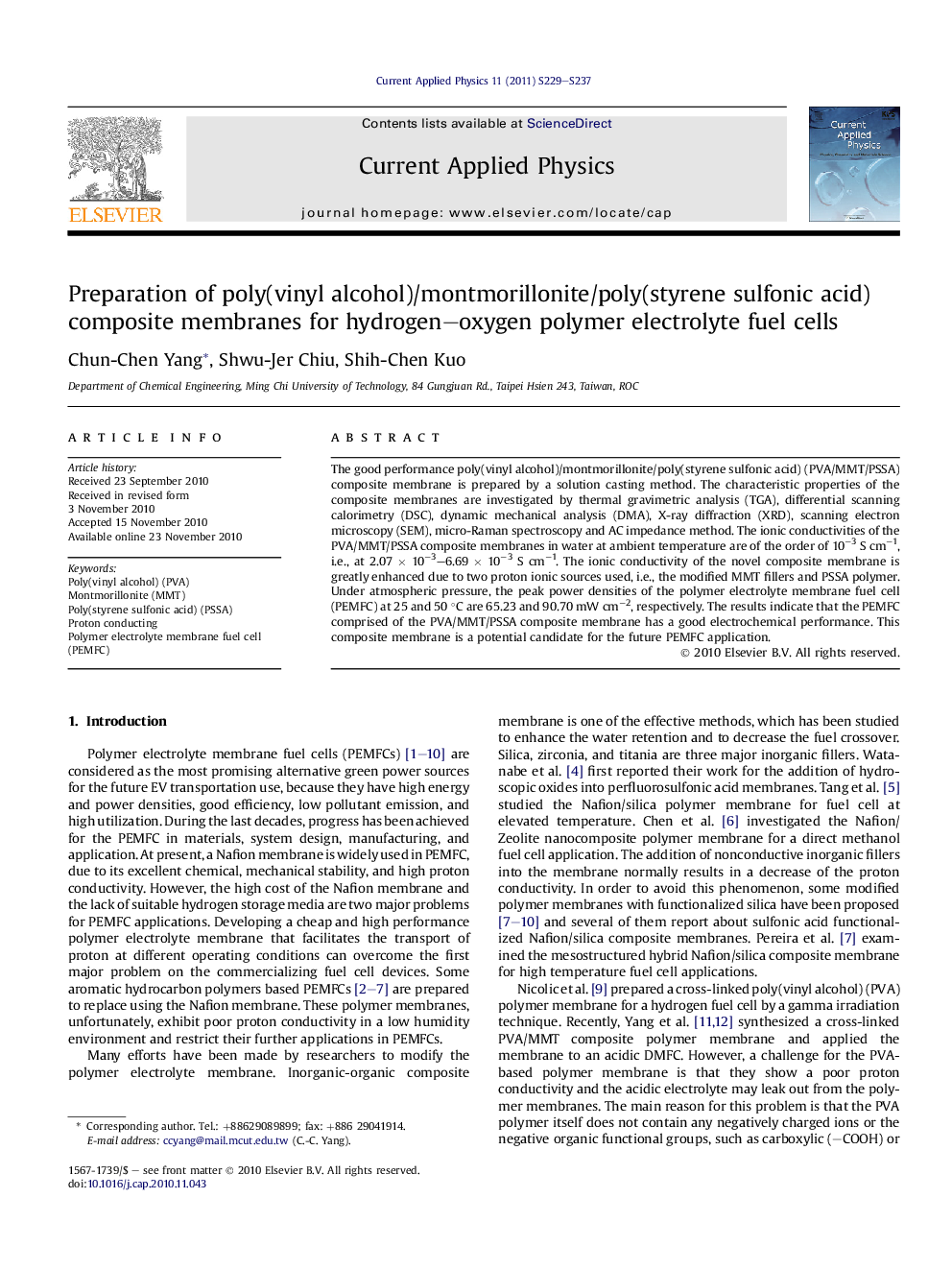| Article ID | Journal | Published Year | Pages | File Type |
|---|---|---|---|---|
| 1786930 | Current Applied Physics | 2011 | 9 Pages |
The good performance poly(vinyl alcohol)/montmorillonite/poly(styrene sulfonic acid) (PVA/MMT/PSSA) composite membrane is prepared by a solution casting method. The characteristic properties of the composite membranes are investigated by thermal gravimetric analysis (TGA), differential scanning calorimetry (DSC), dynamic mechanical analysis (DMA), X-ray diffraction (XRD), scanning electron microscopy (SEM), micro-Raman spectroscopy and AC impedance method. The ionic conductivities of the PVA/MMT/PSSA composite membranes in water at ambient temperature are of the order of 10−3 S cm−1, i.e., at 2.07 × 10−3–6.69 × 10−3 S cm−1. The ionic conductivity of the novel composite membrane is greatly enhanced due to two proton ionic sources used, i.e., the modified MMT fillers and PSSA polymer. Under atmospheric pressure, the peak power densities of the polymer electrolyte membrane fuel cell (PEMFC) at 25 and 50 °C are 65.23 and 90.70 mW cm−2, respectively. The results indicate that the PEMFC comprised of the PVA/MMT/PSSA composite membrane has a good electrochemical performance. This composite membrane is a potential candidate for the future PEMFC application.
► This composite membrane shows good performance in H2-O2 fuel cell. ► The PVA/MMT/PSSA composite membrane is a cheap non-perfluorosulonated solid polymer membrane (SPE), as compared with Nafion 117. ► The preparation method is simple and easy to control.
